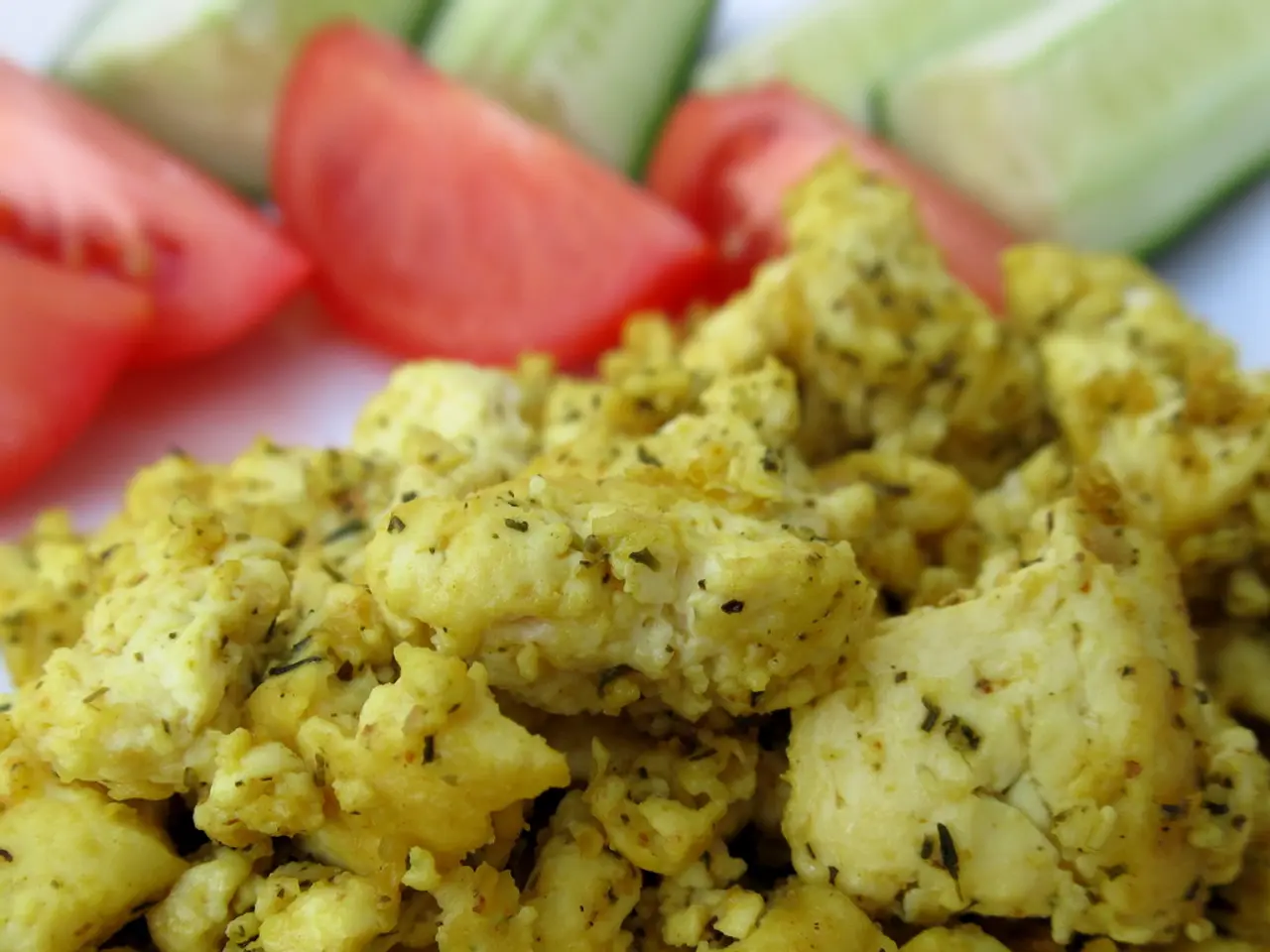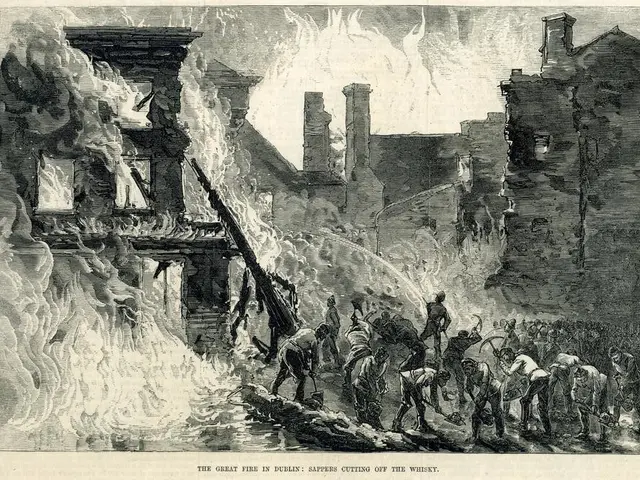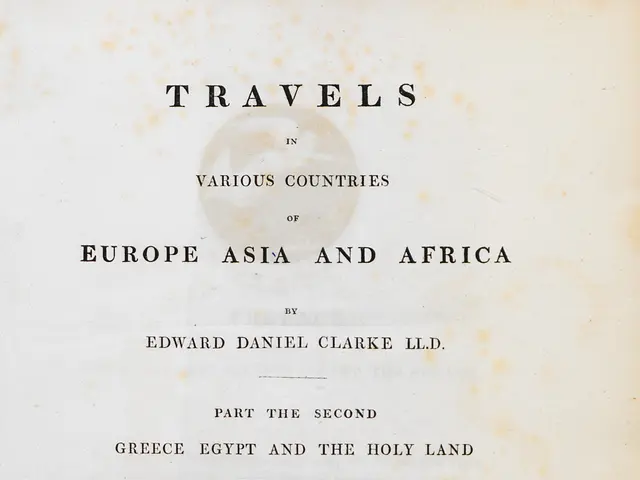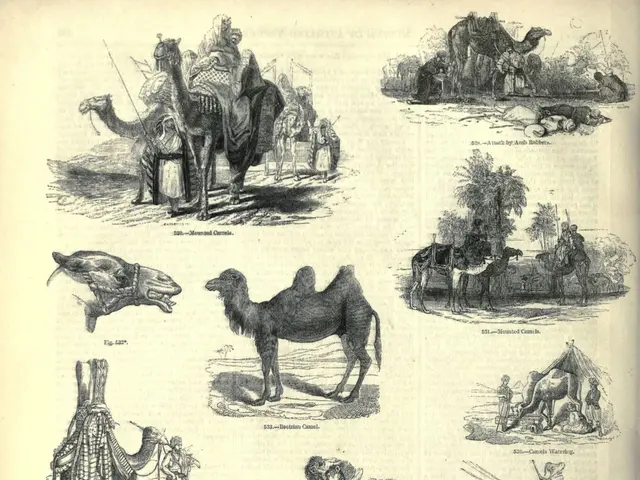India's Vegetarian Trend: An Individual Preference or Social Status Issue?
In the heart of India, a nation known for its rich culinary diversity and traditional vegetarianism, a significant shift is underway. Over the past decade, the country has seen an increasing debate about food consumption, with urbanization and rising incomes leading to a shift in dietary norms beyond the traditionally dominant vegetarian norms.
Contrary to the widespread perception, the National Family Health Survey (NFHS) from 2014 indicated that approximately 80% of Indians aged 15-49 consumed some form of meat. This statistic challenges the image of India as a predominantly vegetarian country, an image largely shaped by the dietary norms of upper-caste Hindus, particularly Brahmins and Baniyas.
However, the reality is that only about 40% of Indian adults identify as vegetarian, according to a 2021 survey by the Pew Research Center. This discrepancy highlights the complexities of food habits in India, which vary by region and caste. For instance, northern Hindi-speaking states lean heavily vegetarian, while people in southern and northeastern states are predominantly meat-eaters.
Meat-eating, especially beef, is stigmatized in India and linked to Dalits and Adivasis, who rely on it for affordable nutrition. This stigma reinforces caste hierarchies and social exclusion. However, for many young Indians like Ujjal Chakraborty, veganism is about environmental responsibility, not caste identity. It is often confused with caste-rooted vegetarianism.
A new trend among urban youth is the increasing embrace of veganism, which is seen as more than just a lifestyle choice but a statement against the caste underpinnings of traditional vegetarianism. This shift is not without challenges. Many people face challenges finding housing due to their dietary preferences, as Abheepsita Purkayastha, a corporate lawyer based in Mumbai, shared her experience of being rejected by landlords due to her family’s consumption of meat.
The caste system in India has been linked to dietary practices, with the notion of 'purity' and 'pollution' playing a significant role in shaping social hierarchy. Hindu nationalist groups actively promote vegetarianism as a marker of 'traditional' Hindu values, often ignoring the diverse food practices across India. This framing reinforces social stigmatization and communal tensions, as Hindu-nationalists often associate Muslims and Dalits, historically marginalized groups, with meat-eating, portraying them as culturally and socially distinct from the primarily vegetarian Hindu majority.
The targeting of meat consumption has led to societal impacts such as increased violence against these communities, restrictions on their dietary practices, and intensified communal polarization in Indian society. An example of this can be seen in India-administered Kashmir's Doda district, where a ban on meat, seafood, and eggs was recently imposed in all educational institutions, citing the need to uphold 'secular principles,' maintain 'social harmony,' and avoid 'discomfort' over dietary differences.
However, there are voices that challenge these norms. Sanskrit scholar Punita Sharma believes that dietary choices are largely shaped by climate and geography, determining the availability of food resources. Kiranmayi Bhushi, author of 'The Culture and Politics of Food in Contemporary India,' stated that the targeting of meat consumption leads to stigmatization and segregation based on religious and caste lines. Social media influencers and activists are credited with making veganism a visible, ethical choice that challenges caste-based vegetarian norms in India.
Narendra Modi became prime minister of India in 2014, and his government's stance on food issues remains to be seen. As India navigates its complex food landscape, it is essential to promote inclusivity, individual freedom, and respect for diverse food practices to ensure a harmonious and equitable society.








